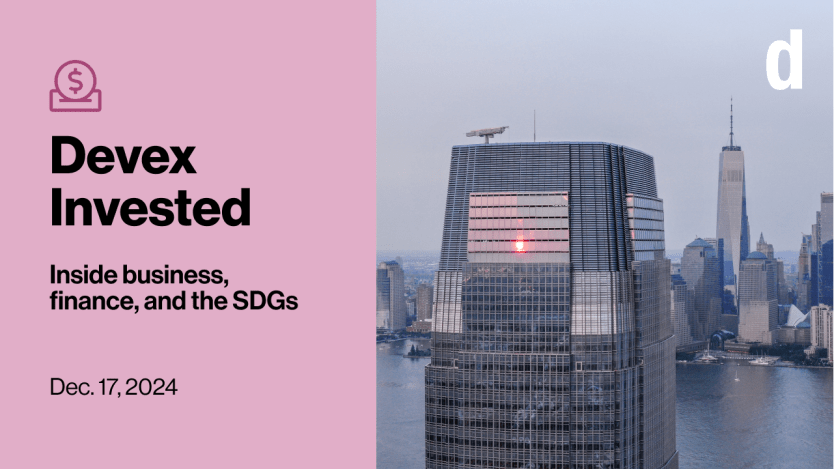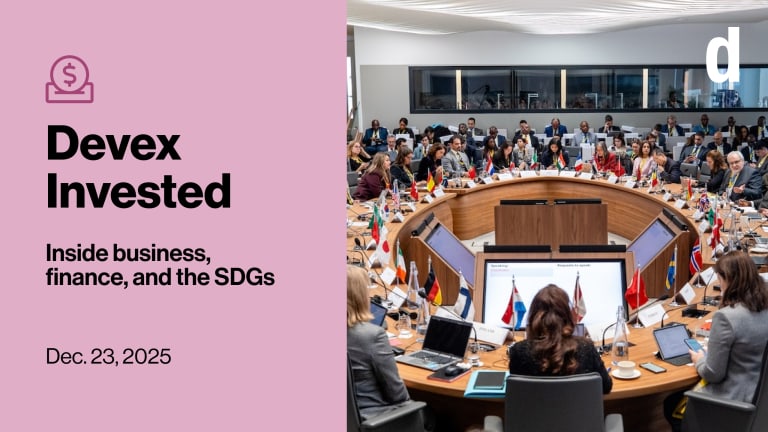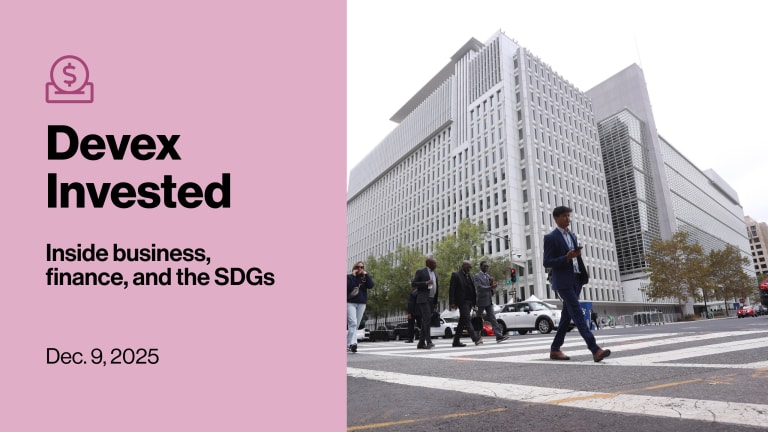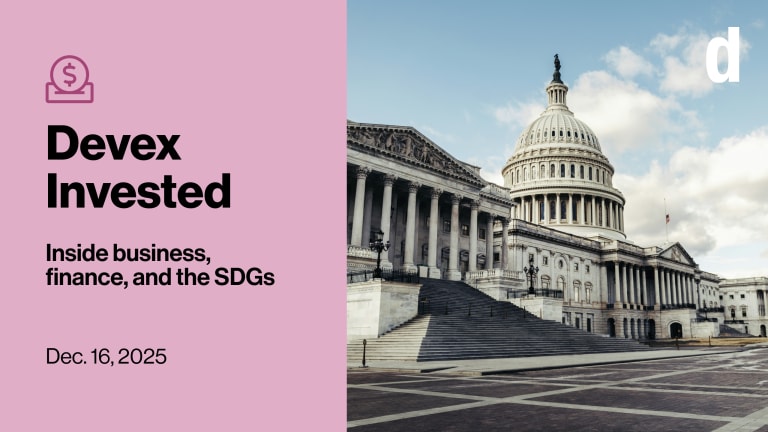
Is Goldman Sachs’ exit from the United Nations’ Net-Zero Banking Alliance the latest sign that big corporations are shirking their climate commitments? It depends on who you ask.
The nonbinding net-zero alliance encourages members to reform their climate change governance toward emissions reductions, shift their lending and investment portfolios to be more climate-friendly, and strengthen climate-related financial disclosures.
Goldman did not give a reason for its exit this month, but told ESG Dive that it has “the capabilities to achieve our goals and to support the sustainability objectives of our clients” and would remain “focused on the increasingly elevated sustainability standards and reporting requirements imposed by regulators around the world.”
Earlier this year, the investment bank also joined the exodus from Climate Action 100+, a group that pushes the world’s largest corporate emitters to curb their carbon footprints.
Some downplayed the significance of the latest departure. Patrick Odier, president of Swiss Sustainable Finance, which promotes sustainable finance in the banking sector, put it down to a desire to reduce the administrative burden.
But my colleague Jesse Chase-Lubitz reports that while Goldman publishes its own sustainability progress reports, alliances can offer standardization, best practices, and a time-bound commitment overseen by the U.N.
For Mindy Lubber, CEO and president of the sustainability nonprofit Ceres, Goldman’s decision is “substantially more than symbolism.”
Read: Are big banks backing away from climate commitments?
Rogun stoush
Infrastructure projects don’t come much bigger than the Rogun Hydropower Plant in Tajikistan, which goes to the World Bank board today.
The bank is portraying it as an opportunity to provide 10 million people with better access to affordable, reliable, and sustainable energy.
However, activists wrote in Al Jazeera that financing from the World Bank for the project — which has been in development for decades — would displace more than 60,000 people and irreparably damage the environment.
Authors Eugene Simonov and Manana Kochladze argue in their piece that the bank still has time to pursue smaller versions of the project and warn that government repression in Tajikistan is stifling civil society opposition.
Speaking of giant infrastructure projects …
The Lobito corridor is designed to connect the southern Democratic Republic of Congo to the Atlantic through Zambia and the port of Lobito in Angola. By updating existing railway lines and building 800 kilometers of new tracks, the United States and its allies are hoping to establish an economic corridor that will also benefit communities along the route.
But as my colleague Adva Saldinger writes in this detailed look at the project, big questions remain:
Can it truly serve as a blueprint for a new type of infrastructure development, beyond the extractive relationships of the past? And will the momentum continue under the incoming Trump administration?
With China working on the Tazara railway east to Tanzania, Zainab Usman, director of the Africa program at the Carnegie Endowment for International Peace, tells Devex that “competition is very, very real.”
“It’s good that finally, the U.S. is getting involved in infrastructure projects in Africa,” Usman says.
However, she cautions that the scheme remains “an extractive project,” given that much of the cargo consists of unprocessed minerals.
In that sense, Usman says, it “is not that different from the status quo.”
Read: The Lobito corridor — a flagship Biden project’s progress and future (Pro)
+ Not yet a Devex Pro member? Start your 15-day free trial today to access all our exclusive reporting and analyses, data-driven funding insights, members-only events, the world’s largest global development job board, and more. Check out all the exclusive content available to you.
Go deeper: Hear Adva discuss the Lobito corridor project with Devex Senior Reporter Michael Igoe on our This Week in Global Development podcast.
More MCC
The U.S. Millennium Challenge Corporation marks 20 years in existence this year, and Adva writes, it’s about to get a birthday present.
The U.S. is on the verge of approving a bill that would expand the range of countries eligible to receive MCC’s large grants, which aim to promote economic growth in nations with strong records of good governance.
The House of Representatives passed the National Defense Authorization Act (which includes the Millennium Challenge Corporation Candidate Country Reform Act) last week, and the Senate is likely to vote on the bill this week.
Under the new law, 33 additional countries would meet MCC’s financial eligibility criteria, including countries in Eastern Europe, along with Pacific Island nations and countries in Latin America that have risen above current income thresholds, such as Guatemala.
Insiders say the bill is seen as an important step for the agency’s future. And though the main game might be country eligibility, Adva reports the bill will also require MCC to report on efforts to undermine MCC programs, especially by China.
Read: MCC bill nears approval, expanding country eligibility and oversight
War footing
Your next job?
Treasury Officer, Portfolio Valuation
Asian Infrastructure Investment Bank
China
As the fighting in Ukraine drags on, the European Bank for Reconstruction and Development last week announced a “first of its kind” €110 million guarantee scheme for businesses unable to secure war risk insurance.
The bank says local insurers are struggling to provide cover after international firms largely pulled out following Russia’s February 2022 invasion — but believes the new facility will bring them back by taking exposure off their balance sheets.
My colleague Rob Merrick tells me that the open-platform scheme will cover inland cargo, motor vehicle damage, and railway rolling stock initially and could — by recycling capital — deliver insurance cover for more than €1 billion worth of goods and vehicles in transit each year, according to the bank.
“This is crucial to giving businesses confidence that their assets are protected, which, in turn, will unlock and accelerate investment in Ukraine,” said EBRD President Odile Renaud-Basso.
France, the United Kingdom, and Norway have contributed to the scheme, with the European Union and Switzerland “in advanced negotiations” to become further donors, EBRD said.
Global Voices 2024
Through our Opinions column this year, development leaders in our community, from global health practitioners and food systems experts to development finance economists and humanitarian workers, have shared solutions-focused insights on what’s working — and what’s next.
In our Global Voices 2024 edition, we spotlight predictions for the year ahead in key areas such as artificial intelligence, gender equality, and climate action. We also revisit some of this year’s most-read opinion pieces, offering expert takes on the pressing challenges and emerging opportunities shaping our world.
Some of our most-read pieces on development finance include:
• “Rather than revolutionizing development, impact investing is being co-opted by development groups, turning what was meant to be a financial tool into just another form of aid.”
Opinion: Development funding is sidelining true impact investing, by Elisabeth Fosseli Olsen.
• “We need a level and transparent playing field in the global governance structure where creditors and borrowers can negotiate as equals to meet debt servicing, human rights obligations, development objectives, and climate financing needs.”
Opinion: A fair future for Africa starts with true and systemic IMF reform, by Jack Odiwa.
What we’re reading
Group of 20 negotiators back South Africa's push to tackle Africa’s debt. [Bloomberg]
How the World Bank is building climate-resilient health systems in India. [Devex]
Experts discuss the need to standardize digital health. [Devex]
Search for articles
Most Read
- 1
- 2
- 3
- 4
- 5








